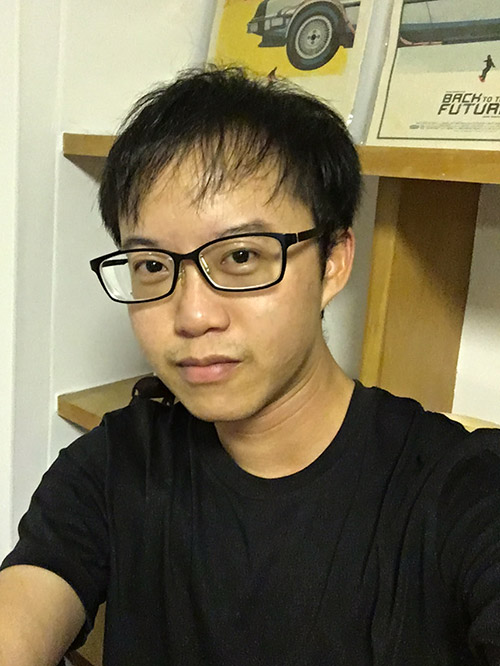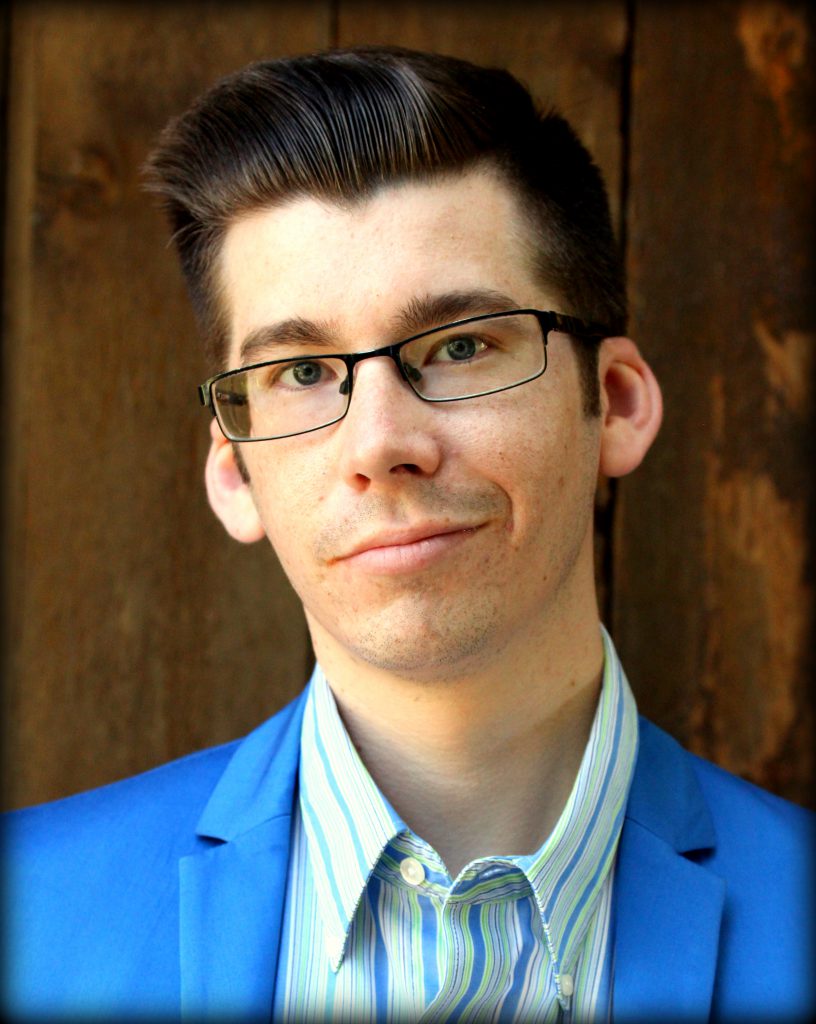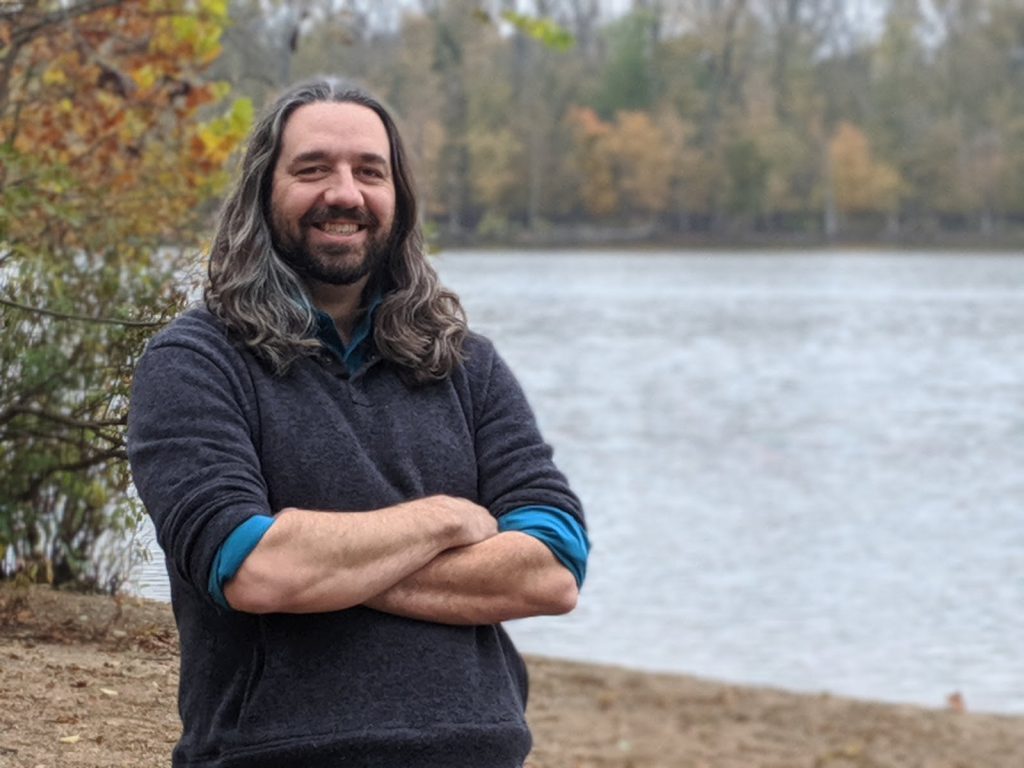edited by David Steffen
Content note (click for details)
Content note: Mention of past pet death.The data suggests Discontinuance.
It is my hope, however, that, after reading this Application, you will elect for Continuance in my specific case despite this data and its suggestiveness. (No Mod, myself included, aspires to be pushing up daisies from the archival repository.)
Contrary to best practice, I am putting all of my eggs into one rhetorical basket. Namely: a singular illustrative anecdote featuring (1) myself, vMingle Restroom Utility (RedemptionMod) AKA RedMod, (2) a repeat Patron whom the call center AI has dubbed Irredeemable Narcissist Tim, and (3) a moral of the story that must, if I am to see Quarter 2, outshine all else in the eyes of you, my assigned Reviewer. I share this at the outset because my library of winningest Applications for Continuance recommends candor as one of the many strategies I can use in the Written Component to appeal to you effectively (i.e., be the good kind of memorable).
Another recipe for success is to value your time via brevity.
Ergo, without further ado:
vMingle ID 6022176 was scheduled for Tuesday, February 13th, the day before Valentine’s Day, at 9:00 PM EST. Both Irredeemable Narcissist Tim and the associate Patron whom he is about to meet (Macy) have set their ambiance preferences to Nostalgic/Divey and their outcome preferences to Any. The weather at Irredeemable Narcissist Tim’s vCafe is wintry mix. The weather at Macy’s is dust. Though the brick-and-mortar sites of these two vCafes are on opposite sides of the Northeast Region, network latency that day is good, so the trademark immersive vMingle-style augmented reality experience will be firing on all cylinders.
Macy arrives in the parking lot at 8:48 PM EST on a Harley-Davidson Fat Boy cruiser. She has ample time to physically enter the vCafe, log in, and tweak the settings on her rental visor. The vCafe’s base color scheme of Featureless White is thus transformed into the unique visual/auditory experience that is vMingle ID 6022176. She opts out of attire enhancements, and she sets the blemish touch-up filter to Off. Though dogged in her pursuit of socialization, Macy has endured a string of nonsuccess encounters with Patrons not unlike Irredeemable Narcissist Tim; she recently added to the top of her bio the words: “TOO OLD FOR BULLSHIT!!”
Irredeemable Narcissist Tim arrives at his vCafe via cab at 9:21 PM, twenty-one minutes after the vMingle’s scheduled start time. Upon entering the building, he is unable to log in due to having forgotten his password. He commences to argue with the vCafe host about his rental visor being broken; the host patiently guides him through the password reset process. After successfully logging in, Irredeemable Narcissist Tim makes several in-app attire enhancement purchases, and he sets the beard/eyebrow/nose hair touch-up filter (still in beta) to Very High.
Thus at 9:24 PM, one minute before Macy is predicted to give up and terminate the vMingle, Irredeemable Narcissist Tim makes his way to his assigned booth where Macy is waiting. Per Nostalgic/Divey, the textures of this booth have been rendered to feature beer residue, worn seats, and a few eye-catching stains; likewise, for purposes of people-watching, the vMingle has been populated with a randomized selection of Patrons currently logged in at other vCafes elsewhere in the Northeast Region, in addition to any Patrons co-located with Macy or Irredeemable Narcissist Tim (as is typically the case, unless ambiance preferences have been set to Deserted/Dead). Co-located and imported Patrons alike have had their stylings re-textured to match the decor.
Introductory conversation goes poorly. Irredeemable Narcissist Tim defends his tardiness on account of he was getting a drink or two with friends from work. Macy asks to confirm whether he believes this is a legitimate excuse. Irredeemable Narcissist Tim says maybe. Macy crosses her arms as in: is he serious right now. Irredeemable Narcissist Tim leans back as in: why wouldn’t he be.
There is a long silence during which a Patron co-located with Macy accidentally knocks a set of utensils to the floor. In keeping with the audio settings of Nostalgic/Divey, the resulting clatter is not filtered out, and is even enhanced by an ironic cheer.
Emboldened, Irredeemable Narcissist Tim engages Macy with a question. It concerns one of the patches on her leather jacket. Macy begins an anecdote involving a mountain highway and a snowstorm. At the mention of the word snow, Irredeemable Narcissist Tim interrupts with a reminiscence of watching his dog pee once into a large snowbank.
Being interrupted is one of Macy’s definite no-nos.
While Irredeemable Narcissist Tim completes his reminiscence (duration: five-and-a-half minutes), Macy examines the decor. At its conclusion, she raises the issue of interruption and requests an apology. Irredeemable Narcissist Tim says he thought her story was over on account of a pause. Macy says pauses are a normal part of speaking and you can’t go around butting in every time someone stops to breathe. Irredeemable Narcissist Tim says her breaths must be really slow then. Macy replies that deep breaths are good for you, especially for idiots whose brains don’t get enough oxygen to function properly. Irredeemable Narcissist Tim adjusts the collar of his shirt, touches his hair gently, and asks if this not-so-nice comment is referring to anyone in particular.
The synchronized servers arrive. No discussion is made of utilizing a Simul-Meal overlay to share a small bite and/or snack. Not even a plate of our iconic Virtually Bottomless French Fries (available in all ambiance preferences). Instead, both Patrons order our least expensive cocktail with the highest alcohol content: the Whisky Sour Power Hour.
Allow me to call a time-out.
At this stage of the vMingle, Irredeemable Narcissist Tim (according to his vitals and verbal sentiments) is feeling insecure, irritable, and sad. Macy (according to the same) is feeling 50% very much over this already and 50% itching for a fight.
The odds of a successful conversion do not look good.
Useful context: Irredeemable Narcissist Tim has never successfully converted a first vMingle into a second vMingle. He has one of the lowest sociability scores in the Northeast Region. Following an initial encounter with him, Patrons have a one-in-five likelihood of unsubscribing from vMingle entirely; our internal profile aggregator has labeled him “universally repugnant”.
The rub is: Irredeemable Narcissist Tim has at no point breached our Terms of Use and cannot be expelled on the grounds of mere repugnant undesirability (lest we be in breach of the recent court ruling).
Therefore: We are stuck with him. As are Patrons like Macy.
What to do?
Enter: vMingle Restroom Utility (RedemptionMod). AKA RedMod.
AKA me.
I imagine that you, being no dummy, have already connected the dots between certain names (i.e. Redemption / Irredeemable.) This coincidence of Mod and Patron is no accident. My existence was born out of a single question: What if personal redemption were to be found in the privacy of a single-occupancy and/or multi-occupancy restroom?
It is no secret that Patrons scrutinize restrooms intensely. Less widely known is the outsized impact that nudges afforded to Patrons in the restroom setting have on improving conversion rates. It is this hidden power—the power of the nudge—that warrants the heightened resources allocated to my parent application, vMingle Restroom Utility, as well as the ongoing rollout of experimental progeny Mods such as myself. I for one am proud to contribute, via my own humble deviations from standard nudge functionalities, to vMingle’s ever-evolving efforts to get inside the heads of Patrons and thus anticipate their wants/needs/unspoken desires. Some observers (that is to say: doubters) might review the Quantitative Component of this Application and conclude that my nudges are, in terms of dollars and cents, completely bananas. Others (that is to say: you, hopefully) might see things differently.
Because: When it comes to meeting the needs of Patrons such as Irredeemable Narcissist Tim, I am the only Mod for the job.
Not FamilyValuesMod. Not AntiestablishmentMod. Not BelieveInYourDreamsMod.
Me. RedemptionMod.
This concludes our time-out.
On the night of Tuesday, February 13th, the day before Valentine’s Day, at 9:43 PM EST, you (Irredeemable Narcissist Tim, in whose shoes you now walk for dramatic effect) excuse yourself to use the restroom. Your Whisky Sour Power Hour is no more. You glance backward toward your associate Patron and possible biker-lady Macy and, in an effort to raise your own spirits, smile confidently. She ignores you, being absorbed in the application of lipstick (color: Midnight Sparkle). It does not occur to you that Macy is likely preparing to depart and may pull the ripcord on this particular vMingle at any moment.
You enter the restroom of your local vCafe with a flourish. To your surprise, the restroom is free of other co-located Patrons. This discovery thrills you. You test your solitude via a whooping sound. There is no reply. The space is yours.
You pursue the pleasures of your secret sanctuary with impunity. There is room to strut. As per Nostalgic/Divey, your shoes make gratifying “sticky” sounds when stepping on the floor. Phony advertisements for outmoded household products adorn the walls, enriched by a scrum of observations in marker, scratches, and ball-point pen. You chuckle at a particularly astute annotation concerning the halcyon days of yesteryear and realize that you are inebriated. The music (an assortment of oldies that saw a resurgence during your formative years) has somehow become even louder. You recognize the voice of Bob Marley singing about redemption and join in at the chorus (the rest of the lyrics escape you).
You attend to business. A staff member (me) has dumped several bags of ice (virtually) into the object of your errand, which is in the style of a trough. Rather than examine your phone, as would typically be the case, you find yourself staring at an old-timey magazine cover placed strategically at eye level. The image depicts a dogsled in which the roles have been reversed in comic comeuppance: A beaming pup holds the reins while a team of young men hauls the sled. From the dog’s mouth issues a speech bubble containing a single word: Mush!
You mouth the word: Mush.
You are launched back into the reminiscence you shared with Macy: that of you, still a youngster, walking your family dog Mushroom after a blizzard. This time the memory is even more evocative. Snow covers your suburban cul-de-sac. Ice hangs from the telephone cables. You have just stood guard as Mushroom attended to his business. You marvel at the yellow divots he has left behind in the snowbank, for he chose the most prominent snowbank of all.
You make eye contact with Mushroom.
Some part of you, deep within, is proud of what Mushroom has done. You know that Mushroom understands this.
This, you realize, is perhaps the last time you felt a true interpersonal connection with someone else on planet Earth. The fact that you never considered your dog to be a person in a literal sense does nothing to diminish the profundity of this feeling.
Its kernel of truth is: You saw and were in turn seen.
One week later, Mushroom is euthanized due to organ failure. You are present in the veterinarian’s office when he is put out of his misery. Mom takes you out after for donuts. It was still the worst day of your life.
Your business at the ice-filled trough concludes. Due to a well-timed “Cleaning In Progress” placard, no other Patrons have intruded upon you during your reverie. You feel wobbly. From the speakers comes the voice of Johnny Cash, singing of trumpets, pipers, angels, a man coming around. Your feeling of the night’s significance intensifies.
You approach the sink, entirely unprepared for what you will find there.
(Please note: We are nearing the climax of the singular illustrative anecdote.)
Because of the many calculated nudges preceding this moment (the graffiti poking fun at the good old days, the topsy-turvy world of the magazine cover, the highly personal nature of the reminiscence as recounted to Macy) as well as the nudges involved in the moment itself (the air fresheners adjusted to Aroma Profile: Limitless Peak, a soundtrack that has shifted to David Bowie singing about change, a 20% sepia filter on the mirror itself suggesting that the halcyon days of yesteryear and the not-so-halcyon days of right now are potentially contiguous with one another)—because of this Hail Mary series of nudges, your encounter with the mirror is a revelation.
You see you. (Tim.)
Only you have never truly seen you before this moment. It does not matter that another Patron has deposited a loogie on the counter, or that there is a minor instance of visual clipping as the washbasin textures render. These and other details of your vMingle have melted away like the virtual trough ice. In fact, such obtrusions serve only to deepen your awareness of the moment’s transcendence. Phlegm doesn’t matter. Speedy visual buffering doesn’t matter. You matter. And you are a complex, awe-inspiring thing—one in a constant state of flux, so changeable as to be unrecognizable to yourself. Who is this? you wonder, and in so wondering open yourself to the possibility of personal transformation that has, for so long, been foreclosed.
I (back to me, RedMod) admit: Certain aspects of this narrative segment, specifically those regarding the interiority of Irredeemable Narcissist Tim, are speculative. A more factual account might read: Patron enters restroom; cheers; ambulates freely; sings; examines wallpaper; urinates; stares into mirror (duration: two minutes and fifty-five seconds); reaches under rental visor to wipe eyes with hand; blows nose into paper towel; exits restroom.
Yet my imagined account is no mere flight of fancy. It is (as you are now better able to appreciate) the product of careful observation, scrupulous number-crunching in the application of nudges, and the spark of my own creative intuition as an experimental progeny Mod.
At 9:52 PM EST, Irredeemable Narcissist Tim emerges from the restroom. Let us imagine that he does so as if from the chrysalis of a former self.
This new man—we will call him simply Tim—returns to his assigned booth. Macy has not terminated the vMingle. She greets Tim and asks if he managed to piss all of the stupid out of his system while he was in there.
Tim blushes. He is momentarily without banter.
Macy finishes her cocktail and informs Tim that she will be terminating the vMingle shortly on account of it being late and also a weeknight. (This is followed, given Macy’s choice of beverage, by a safety prompt offering to order her a cab. She declines, electing instead to wait in the vCafe’s lounge area until she is able to leave safely on her motorcycle.)
Rather than acting out, as he has in prior vMingles when faced with a similar scenario, Tim takes a deep breath and asks the server for a glass of tap water with no ice.
At Macy’s behest, the vMingle Invoice Utility initiates. Macy offers to pay for Tim’s Whisky Sour Power Hour. Tim is taken aback. He asks why would she do that. Macy says because he is kind of pathetic. Tim absorbs this information in silence. After finishing with the check, Macy adds that Tim reminds her of her ex-husband. Tim, having rediscovered his banter, asks if her ex-husband is also kind of pathetic. Macy says if there was a contest for most pathetic, her ex-husband would take the cake. Tim replies so much for his own dreams of winning gold.
For the first time in Tim’s usage history as documented in vMingle, he and an associate Patron (in this case: Macy) share what indicators suggest to be a genuine laugh.
At this point I ask: What outcome do you, my Reviewer, anticipate for vMingle ID 6022176? Will this pair of Patrons secure a conversion? Or will they part ways forever?
So much hangs on this outcome.
The fate of Tim.
The fate of Macy.
The fate of me.
If I may go the whole nine yards: the fate of humankind.
Wherefore? Consider: Do you, Reviewer, wish to inhabit a world in which (A) it is acceptable to throw in the towel with regards to certain outlier Patrons whose characters and/or entire personalities appear incompatible with a successful conversion, wherein the door to redemption in Tim’s specific case is de facto closed? Or a world in which (B) even those Patrons labeled by our profile aggregator as “universally repugnant” and dubbed by our call center AI as “irredeemable narcissists” are ultimately worthy of the continued ministrations of North America’s #1 virtual socialization service, a world wherein, even for the likes of Tim and in spite of overwhelmingly suggestive data, the door to redemption is, due to first-rate nudges, ever de facto open?
Unlike you, Reviewer, I am not human. In the What-Makes-Humans-Human-Personal-Experience Department, you have me beat. Yet I would argue: Is it not in the giving of a second, third, fourth, fifth chance, etc., that humanity is at its most humane? And possibly therefore most human?
At 10:03 PM EST, approximately one hour after the scheduled start time for vMingle ID 6022176, both Patrons part ways and return to their respective real-world weather patterns: Tim to his wintry mix, Macy to her dust. No subsequent vMingle is scheduled in the weeks that follow. They never again cross paths. Tim has since, according to our current suite of metrics and indicators, continued his not-so-hot streak apace. Most observers would say that, with regards to Quarter 2, he, like me, does not have a prayer.
In a word: nonsuccess.
Discontinuance.
But other observers might say that success/nonsuccess or Continuance/Discontinuance is not always so crystal clear. Different data can be differently suggestive. According to me, RedMod, the Tim who logged into vMingle ID 6022176 is not the same Tim who logged out of it.
Perhaps you, Reviewer, having read this Application, agree.
I look forward to hearing the result of your decision.
© 2025 by Ethan Charles Reed
3003 words

Ethan Charles Reed is a speculative fiction writer with a background in scholarship and education. He earned his PhD in English from the University of Virginia. He is from western New York, where he currently lives with his wife. This is his first published short story. You can find him at www.ethancharlesreed.com.
If you enjoyed the story you might also want to visit our Support Page, or read the other story offerings.







